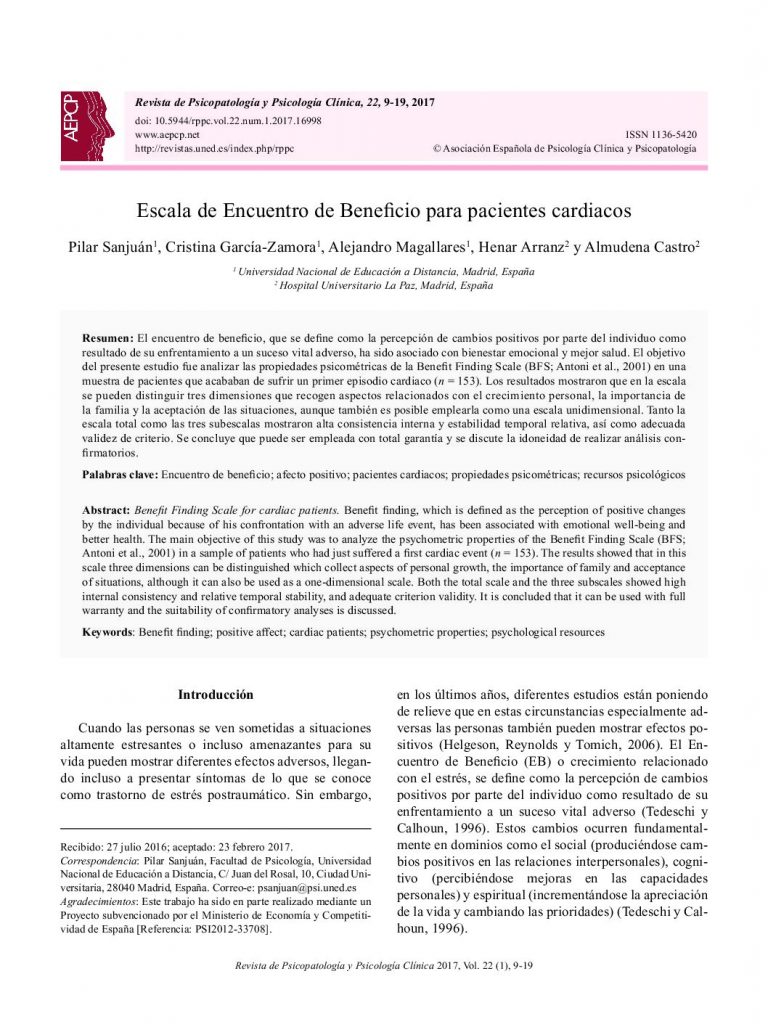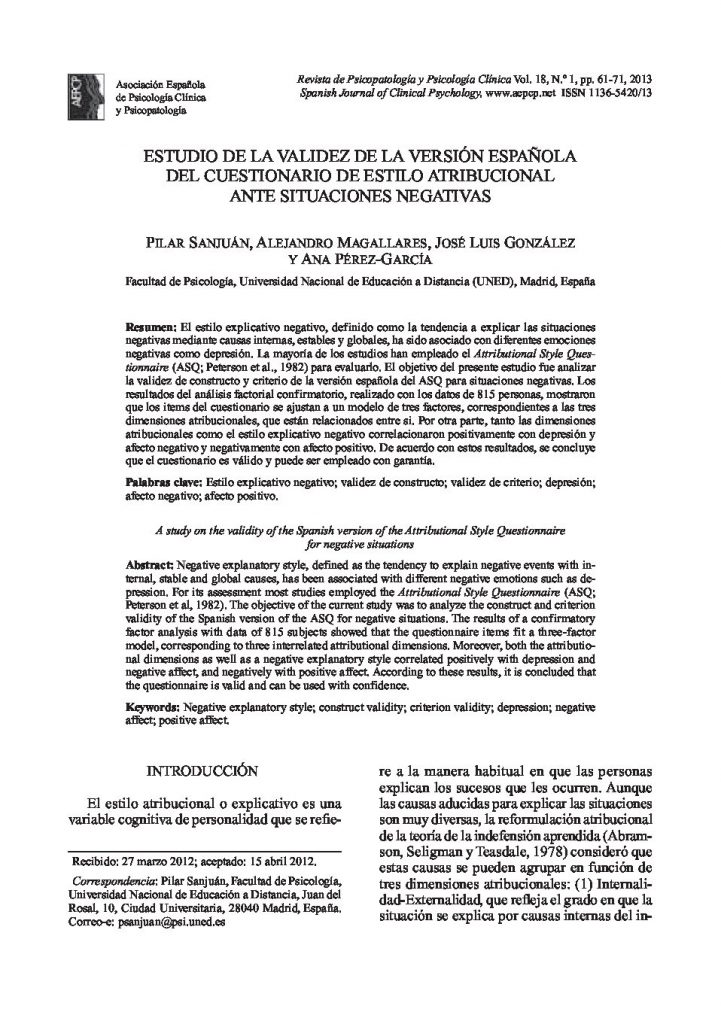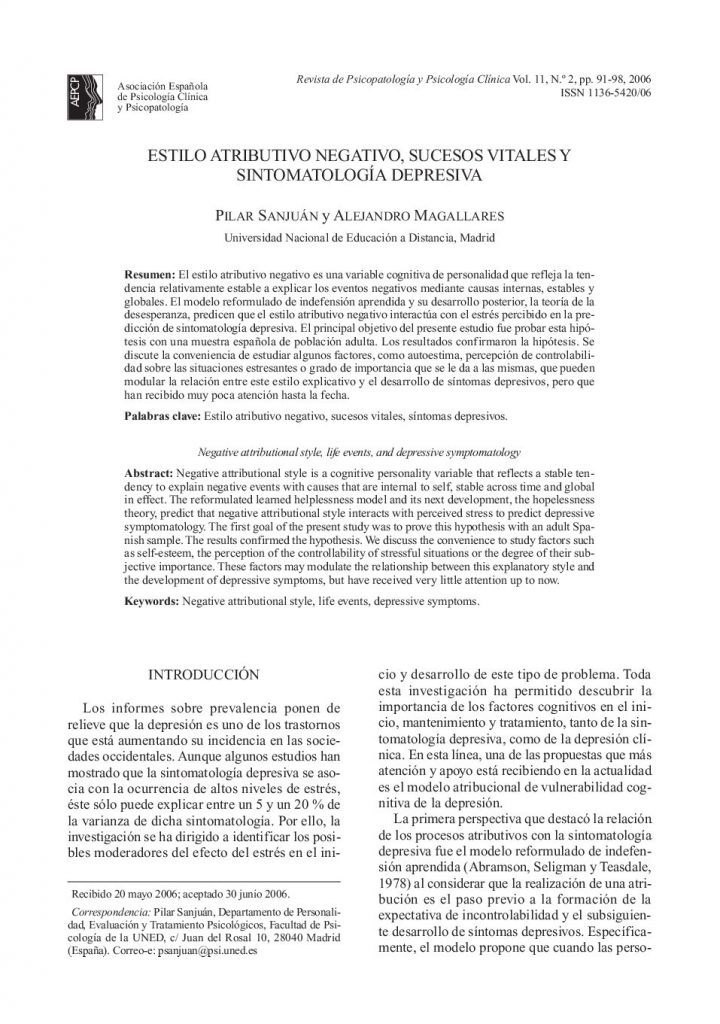La Escala de Encuentro de Beneficio para pacientes cardiacos.

- Resultados de un programa de tratamiento psicológico grupal para la enfermedad inflamatoria intestinal.
- La Escala de Encuentro de Beneficio para pacientes cardiacos.
- Estilos de afrontamiento y generación de estrés interpersonal en adolescentes.
- Intento de suicidio y factores de riesgo en una muestra de adolescentes escolarizados de Chile.
- Dimensionality and psychometric properties of the Spanish version of the Mechanisms of Moral Disengagement Scale (MMDS-S).
- Adaptación al castellano de la Escala DS-14 («Type D Scale-14») para la medida de la personalidad tipo D.
- El trastorno dismórfico corporal: Un problema infra-diagnosticado.
Benefit finding, which is defined as the perception of positive changes by the individual because of his confrontation with an adverse life event, has been associated with emotional well-being and better health. The main objective of this study was to analyze the psychometric properties of the Benefit Finding Scale (BFS; Antoni et al., 2001) in a sample of patients who had just suffered a fi rst cardiac event (n = 153). The results showed that in this scale three dimensions can be distinguished which collect aspects of personal growth, the importance of family and acceptance of situations, although it can also be used as a one-dimensional scale. Both the total scale and the three subscales showed high internal consistency and relative temporal stability, and adequate criterion validity. It is concluded that it can be used with full warranty and the suitability of confi rmatory analyses is discussed.
El encuentro de beneficio, que se define como la percepción de cambios positivos por parte del individuo como resultado de su enfrentamiento a un suceso vital adverso, ha sido asociado con bienestar emocional y mejor salud. El objetivo del presente estudio fue analizar las propiedades psicométricas de la Benefit Finding Scale (BFS; Antoni et al., 2001) en una muestra de pacientes que acababan de sufrir un primer episodio cardiaco (n=153). Los resultados mostraron que en la escala se pueden distinguir tres dimensiones que recogen aspectos relacionados con el crecimiento personal, la importancia de la familia y la aceptación de las situaciones, aunque también es posible emplearla como una escala unidimensional. Tanto la escala total como las tres subescalas mostraron alta consistencia interna y estabilidad temporal relativa, así como adecuada validez de criterio. Se concluye que puede ser empleada con total garantía y se discute la idoneidad de realizar análisis confirmatorios.





